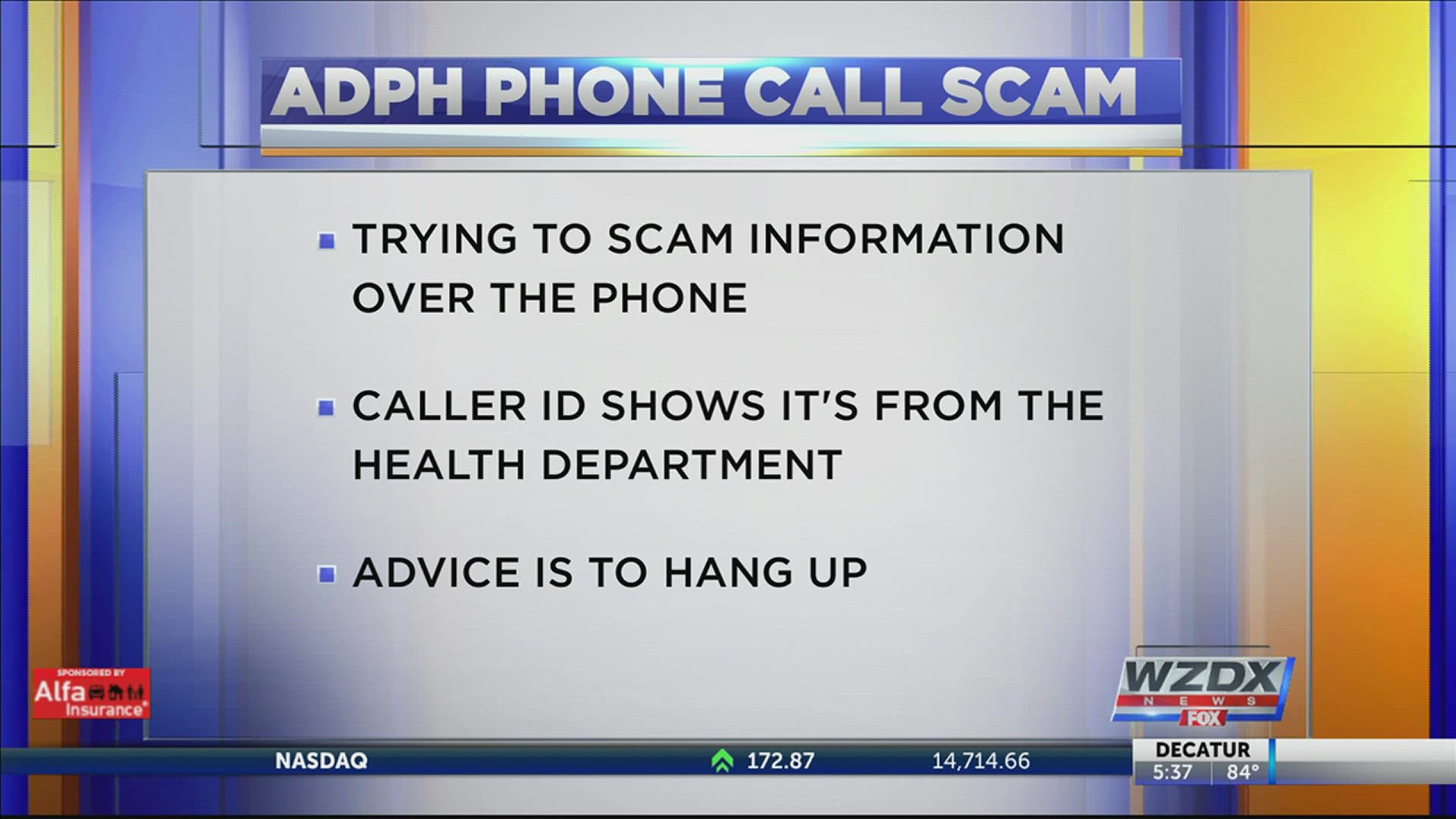HUNTSVILLE, Ala. — A new scam is going around, and the Alabama Dept. of Public Health wants to make sure you know about it.
The department has received reports that residents are receiving unsolicited telephone calls, including some asking questions about their Medicare coverage. One of the numbers from which they are calling appears to be from a county health department number.
There are many legitimate reasons public health may be calling that include notification about COVID-19 test results.
State Health Officer Dr. Scott Harris advises people to never provide any personal information such as Social Security numbers, addresses, Medicare or Medicaid information, or health information. If you get one of these scam Medicare calls, hang up.
This is not the only scam looking for victims right now.
Almost everyone has been contacted about their car's extended warranty at some point, and most people know not to give a Nigerian prince money if they ask for it. Most people also realize both of these scenarios are scams designed to trick people into handing over cash.
However, federal officials are warning people that scams are getting more complex online, and are targeting a more vulnerable population — elderly people. They also said the number of online scams targeting elderly people is growing because of the pandemic.
As more people stayed at home, more older people started to shop online instead of in person. And it can be harder to spot a scam if someone is not used to shopping online.
"Last year we saw an unprecedented number of new websites that came out because of COVID-19, the pandemic and people shopping online," Tony Binkley, the CEO of the Better Business Bureau of Greater East Tennessee.
'"It's pretty easy to make a website, to put pictures up there of things you have for sale, and if you put great prices up there people may be attracted to those great prices — but these websites are so easy to fake," he said.
Binkley urged people to do their research before making a purchase online. He urged online shoppers to look at the website's return policy and their contact information. The policies are usually easy to find and are clearly written on legitimate websites.
Websites that are safe to shop from also tend to have clear contact information including an email address, a working phone number and a physical address.
They also tend to have reasonable prices, instead of seemingly impossible deals.
"Do the prices look too good to be true?" he said. "Because they typically are."
Binley also said people should shop with a credit card if they can. Credit cards usually have more identity protections in place, as well as protection against being scammed compared to debit cards.
"If you've got the least bit of apprehension with the website, or you're not sure about it, maybe ask somebody else to take a look at it," he also said.
The FBI said that each year, elder fraud and scams targeting older people cause around $3 billion in losses.

